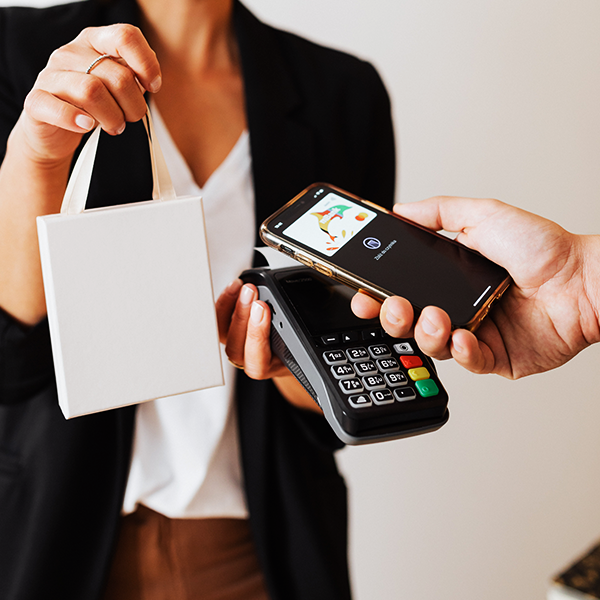Should you use debit or credit cards? On the one hand, credit cards seem like you can build credit with it. On the other hand, Dave Ramsey would probably prefer debit cards because he thinks credit cards are evil.
In this post, I’ll talk about why you should use credit cards and why you should probably leave your debit card at home.
Security: Debit Cards Vs Credit Card
This is probably the primary reason why I’d advocate for you to use a credit card instead of a debit card.
Debit cards are not secure, and credit cards are much more secure. Let me explain.
Let’s say you buy some Jimmy Choo shoes. A credit card will pay Jimmy Choo on ‘credit’. This means the credit card company pays the merchant, and you promise to pay the credit card company back later. Hence, credit card. Your money isn’t gone yet when you buy those Jimmy Choo’s. Only the credit card company’s money is gone.
Now let’s say it wasn’t you who bought those Jimmy Choo’s. Someone stole your credit card information and bought them instead. You call your credit card company to complain about this order and ask for your money back. The credit card company credits you the money because they’re happy to grab the money back from Jimmy Choo.
In addition, if a lot of fraudulent orders are associated with a merchant, credit card companies can withhold payment to the merchant for a long time. For example:
- You use a credit card to pay for Jimmy Choo’s – normally, it takes 2-3 business days for the money to land in their bank account.
- But if Jimmy Choo processes a lot of fraudulent orders, the credit card might not pay them until 30-90 days after.
- And if Jimmy Choo processes too many fraudulent orders, Visa/Mastercard/Amex can simply ban the merchant from collecting money with their credit cards. This will severely cripple their business because can you imagine buying shoes with cash? That’s some drug-dealer shit.
TLDR: with credit cards, you’re protected because it’s the bank that takes the financial risk upon purchase, and they have infinite leverage over any merchant.
Now, let’s talk about debit cards.
- You buy the same Jimmy Choo shoes.
- Instead of the credit card’s money paying for the purchase, it’s your hard-earned money. As a result, at the time of your purchase, your money is gone.
- Now let’s say someone stole your debit card information and did a fraudulent purchase. How will you get your money back?
- You try calling Jimmy Choo but since you paid in debit card, but you have no leverage over them at all. So, they just laugh and hang up on you.
- You then call your bank and they say they might be able to help you but they need start a 6-month long investigation and they require you to fill out stacks of paperwork.
As you can see, since it’s your money that’s used in the purchase, nobody is incentivized to help you. You bear all the financial risk. With credit cards, it’s the credit card company’s money and they are super-incentivized to get their money back (and it’s easy for them to do it too because they have all the leverage).
If your debit card is stolen, sure, you might be able to get all your money back. But which do you prefer: 6 months of paperwork with your bank or just flagging a transaction as “fraudulent” on your credit card app?
And fraud isn’t a rare, black swan event. It happens extremely frequently. The world is filled with scumbags. Leave your debit cards at home, please.
How Do You Build Credit With A Debit Card? Oh Wait, You Can’t!
Credit cards help you build “credit.” This is a metric of how much credit risk a bank has to take in order to loan you money. The higher your credit score, the lower your risk.
Ergo, the higher the credit score, the better rates you’ll get in mortgages and other loans. A higher credit score can save you hundreds of thousands, if not millions, over decades.
A higher credit score means a credit card company is very unlikely to reject you if you chargeback a transaction. A chargeback is when you call your credit card and tell them a transaction is fraudulent. If you’re not a credit risk, it’s unlike you’re committing fraud. Thus, if you have been a customer with the card company for a while and you call about a fraudulent order, they’ll just believe you.
Lastly, using a credit card gives you credit card points, which can be redeemed for a lot of value. With a debit card, you just spend your money and it’s gone. With a credit card, you spend money you need to spend anyway and you’ll get rewarded for it.
It’s A No-Brainer
Using debit cards are extremely risky compared to credit cards. You can lose all your money and all it takes is a waiter with a magnetic scanner to be able to take all your money.
There’s no hard spending limit on debit cards – it’s all your money. Credit cards at least have a protection of how much the thief can spend before the card blows up or flags it as fraudulent.
In fact, I’m so concerned with the enormous financial risk of debit cards that I think you should almost never carry your debit card around. Leave it in a vault inside your house. The only time you should take your debit card with you is if you’re running an errand to go directly to an ATM to get cash.
With credit cards, you’re much more protected and your purchases are secured by the credit card company’s infinite resources.
Debit cards don’t build credit, while credit cards do. Thus, spending a bunch of money in the long term with your debit card will help you exactly 0.
Money spent with debit cards are just spent money. Money spent with credit cards will result in credit card points that can be redeemed for lifelong, unforgettable experiences including but not limited to:
- Luxurious hotel stays
- First class flights
- Exclusive restaurant experiences
- Flight/hotel comped vacation.
So between the choice of:
- A debit card you can use where 1) you’d lose all your money if your information was stolen, 2) do not get rewarded for spending your money, OR
- Using a credit card where 1) you build credit worthiness as you use your card 2) get rewarded in points for spending money, and 3) provides security when you do transactions.
Which would you rather have?
The answer’s a no brainer.
The main caveat here when relating to debt.
Just make sure you always pay off your credit card each month, and you won’t have any “debt” issues associated with credit cards. It’s as simple as that. Pay off your debts…and you won’t have any debt. And if debt is such a concern for you where getting a hold of a credit card will make you spend wildly, then you don’t have the financial maturity to handle money in the first place – debit OR credit.
And lastly, there’s extreme situations where you might need to incur debt due to medical emergencies. A debit card won’t loan you any money, so you’re screwed there. If you absolutely have to take on debt due to emergencies, a credit card can be your best friend (or, you know, your best friend can be your best friend and lend you some money instead without the predatory APRs).












0 Comments
Trackbacks/Pingbacks